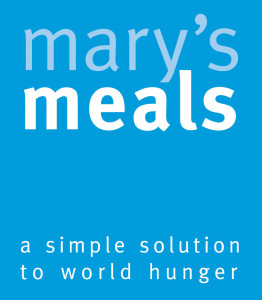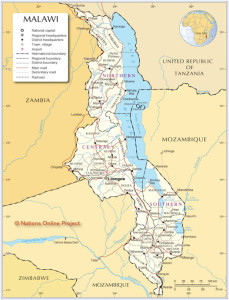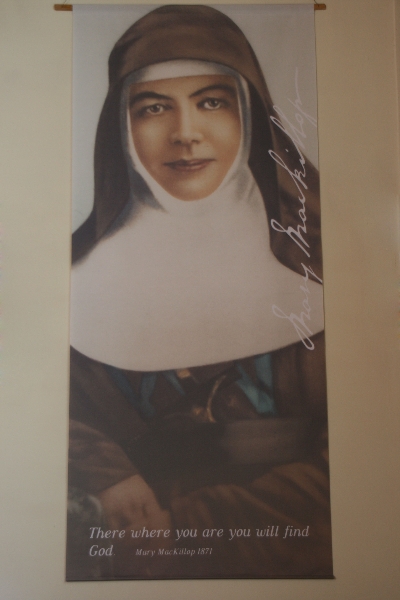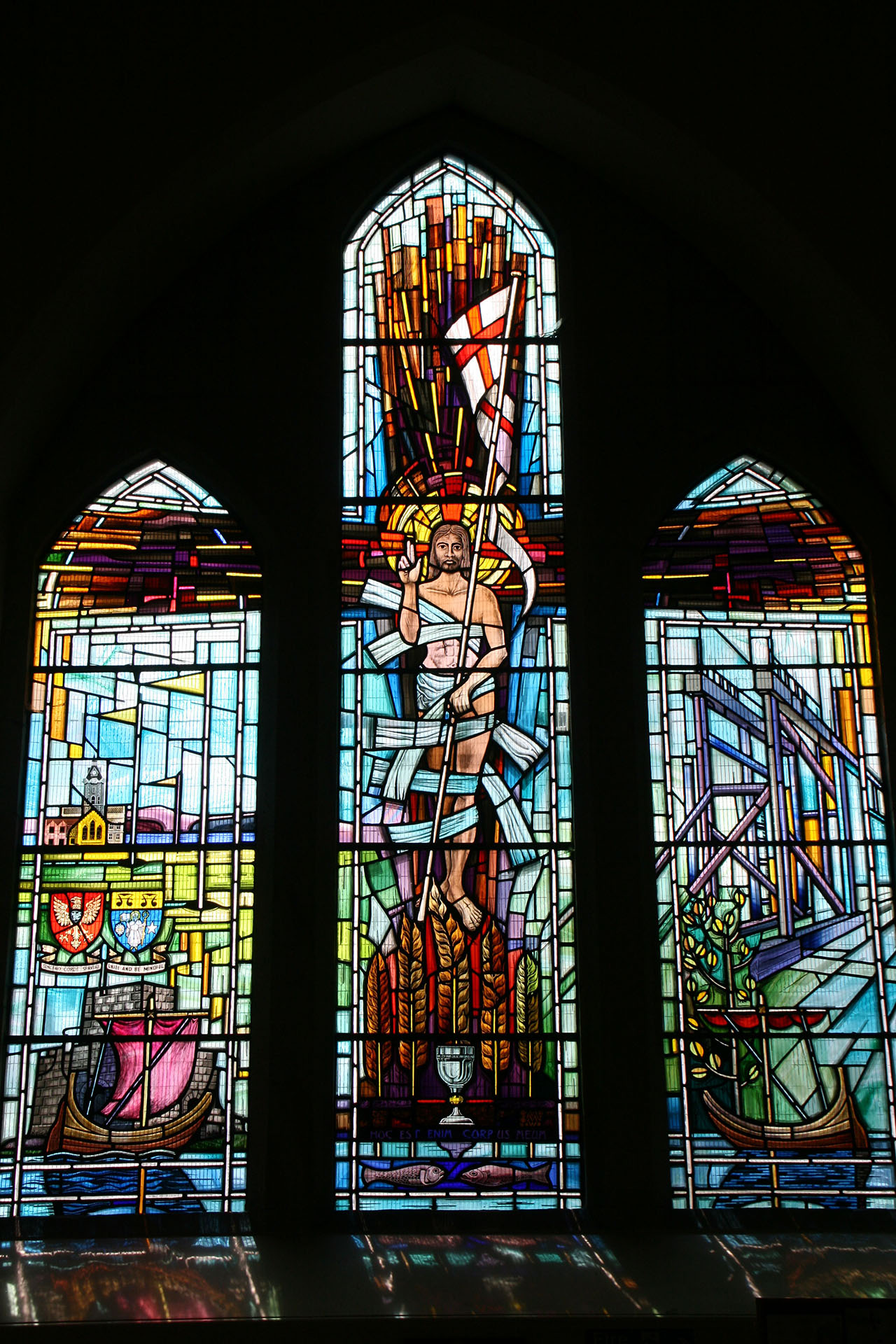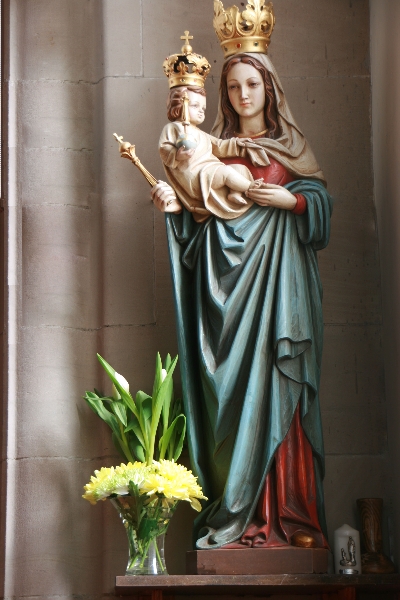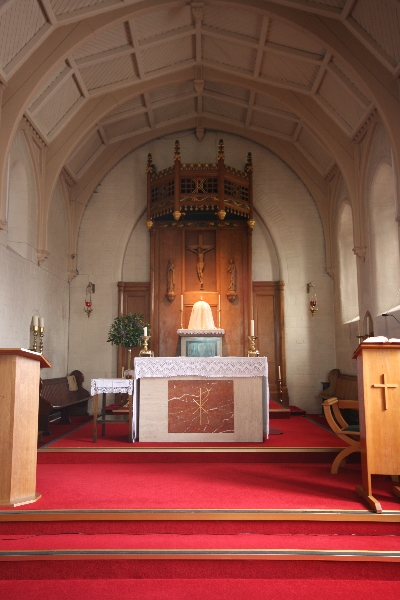During 1992 two brothers, Magnus and Fergus MacFarlane-Barrow from Scotland, were so moved by the TV news from the Bosnian conflict, they organised an appeal for food and blankets. Joining one of the convoys leaving the UK, they took a jeep load, delivering the aid to Medjugorje in Bosnia and Herzegovina. On returning home, expecting to return to their jobs, they discovered the public donations had continued to flood in.
Magnus decided to give up his job for a year to drive the aid out to Bosnia for as long as the public kept donating. The public did not stop and it soon became necessary to set up a registered charity, Scottish International Relief (SIR). The charity expanded working in Romania, building homes for abandoned children, Liberia, helping returning refugees by setting up mobile clinics, whilst continuing to deliver material aid to Croatia and Bosnia, and funding additional projects.
In 2002, SIR was operating a simple famine relief project in Malawi when Magnus met a family that led to a whole new area of work. The mother was dying of AIDS and lying on the floor of her hut surrounded by her six young children. She said that all that was left for her was to pray for her children, that someone might look after them after she had died. When Magnus asked her oldest son what he hoped for in life, his stark reply, “To have enough food to eat and to go to school one day,” was not easily forgotten.
This was a key part of the inspiration that led to the Mary’s Meals campaign, which aims to provide chronically hungry children with one meal every school day. In this way the children are encouraged to gain the education that can lift them out of poverty in later life. This simple but effective idea has gathered momentum and today provides meals to impoverished children in Africa, Asia, the Caribbean, Eastern Europe and South America.
In 2012, Scottish International Relief officially changed its registered charity name to Mary’s Meals
While visiting Malawi, UK Businessman Tony Smith was moved by the plight of the poor who were suffering acutely due to severe food shortages. Inspired by a TV interview involving US Senator James McGovern who helped found the World Food Programme, the concept of a movement that established school feeding programmes for the world’s hungriest children came to Tony Smith.
He had been touched by a small village in Bosnia called Medjugorje, and conscious of Mary’s part in his life and the blessings that had stemmed from Medjugorje, he gave his idea the name ‘Mary’s Meals’ placing the whole project in the hands of the Virgin Mary.
At that time, the charity Scottish International Relief whose roots also stemmed from Medjugorje, were involved in delivering millions of pounds worth of emergency aid, and funding various projects aimed at helping the poorest of the poor in Malawi and several other countries around the world. During a meeting with Magnus MacFarlane-Barrow, Tony Smith shared his vision and suggested that Scottish International Relief put it into practice. And so the story of Mary’s Meals began…
Mary’s Meals vision is that every child receives one daily meal in their place of education and that all those who have more than they need share with those who lack even the most basic things. Their mission is to enable people to offer their money, goods, skills, time, or prayer, and through this involvement, provide the most effective help to those suffering the effects of extreme poverty in the world’s poorest communities.
Hungry children think about survival, not about going to school. In order to survive, they have to work, whether in the fields or on the streets. Even if they do make it into the classroom, hunger will affect their ability to learn. Mary’s Meals provides daily meals to these children in a place of learning. In this way the hungry child is attracted to the classroom, they have the energy and opportunity to learn, which can be their escape route out of poverty in later life, gaining a better future for themselves and their community. Poor families often expect girls to help in the household. Mary’s Meals helps girls attend school and realize their full potential.
For many children, Mary’s Meals may be the only meal they will have that day. To keep costs low, wherever possible, food for the school meals is sourced locally. This supports the local economy, respects local culture and food preferences, and avoids incurring extra transport costs . In Malawi, Likuni Phala, a nutritious maize porridge fortified with vitamins and minerals is served. In other countries such as Thailand, curries made with meat, fish, rice and vegetables are provided.
Mary’s Meals works in partnership with local communities. In Liberia, the communities build the simple kitchens needed to cook Mary’s Meals. In Malawi, volunteers, usually parents, cook and serve the meals, drawing up rotas to manage the stores and look after the cooking stoves. They understand better than anyone how important the daily meal is to their children.
The main focus of Mary’s Meals is their school feeding programmes, but they also have a long history of providing emergency relief to vulnerable regions around the world. Mary’s Meals grew out of a response to the Bosnian conflict in the early 1990s. Since then they have been involved in emergency relief work in countries including India, Burma, Thailand and Haiti, where they have provided much needed aid including food, shelter, medical supplies, and material and financial support.
Ways to help Mary’s Meals include the following:
– Fundraising. Fundraising Calendars are available to advertise your event, and tips and advice from other fundraisers.
– Organise an event. Mary’s Meals can provide: posters, leaflets, Mary’s Meals DVDs, T Shirts, speakers from Mary’s Meals, sponsor forms etc.
– Backpack Project. Fill backpacks with basic educational materials to send to children receiving Mary’s Meals, e.g. pencils and copy books, even suitable clothes for the children to wear to school.
– Sponsor a School. You can fundraise to provide a whole school in Malawi or Liberia with meals for a year.
– Prayer support.
For more information please contact Mary’s Meals local representative, Mrs. Bridget Gordon, on 01667 453797
Our Father
give us this day our daily bread
and forgive us for the times when
we take more than our share of
the bread that belongs to all.
Let us help You fill the starving
with good things
not with scraps from our table.
Teach us how to share what is not
ours to keep.
Clothe us with Your love
that we may complete each good
work you created us to do.
Place in our hearts Your
compassion for each starving child
and use our little acts of love so
that they starve no more.
Amen
Mary’s Meals Centre – Kaphirikwete
In memory of Samuel Benedict Rimmer 19/10/2012 – 26/10/2012
Baby Sam’s life was only a week long but thankfully he knew no pain or distress and his week was filled with love and cuddles. Sam will always live on in the hearts of Maugan, Jo and big brother Findlay as well as in the hearts of all his family and friends.
Sam’s family will never forget him and wanted his short life to have a practical impact. They decided to fundraise in order to build a feeding shelter in memory of Sam. The shelter, built and run by Mary’s Meals, is situated at a school in Malawi, and provides a meal for children who otherwise would not be fed or educated.
For further information please visit the Website http://www.justgiving.com/Bridget-Gordon
Report from Malawi:
Kaphirikwete Primary School
Balaka District, Southern Malawi
Kitchen sponsored by Bridget Gordon and Family
School information:
Your school, Kaphirikwete Primary, is located in the southern district of Balaka, Malawi. Balaka is an expanding commercial district, mainly due to the fact that it’s capital township, Balaka, lies on the road from Zomba to Lilongwe as well as being a stop on the rail route between Blantyre and the township of Salima. Balaka’s economy relies heavily on paper production and the dyeing of textiles for clothes. The main office of Montfort Media (publisher of political magazine “The Lamp” and the youth magazine “Together”), a prominent Malawian media company, is to be found in Balaka. 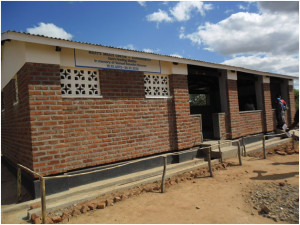
Your school currently has 378 children enrolled, of whom 192 are boys and 186 girls. The children range from Standards 1 – 6. There are 6 permanent classrooms at Kaphirikwete and your kitchen can double up as a classroom when it is not being used for feeding. The children are taught by a total of 10 teachers.
The school’s water source is a borehole in the school grounds. There are 16 pit latrine toilets on site which are shared. Kaphirikwete has a limited amount of sports balls which are available to the children so they can play games such as football and netball. 
School Kitchens in Malawi:
The kitchen is constructed from bricks and concrete and so is a permanent structure in the school grounds. When Mary’s Meals are approached to begin feeding in a school, there is a request for buy in from the local community and so they provide 10% of the bricks used. Construction takes approximately 8-12 weeks, and during this time the volunteer cooks use a temporary shelter to cook the meals undercover.
The building you have funded is made up of 3 rooms; there is 1 main room where the cooking takes place plus 2 storerooms – 1 for firewood and 1 for the storage of the Likuni Phala. These are both kept locked for security and hygiene reasons. The kitchen is fully equipped with utensils, pots, pans and mugs for the children to eat from. The children regard the mugs very highly and you can often see youngsters carrying them around on a string so as not to lose them.
When the kitchen is not being used for feeding, it can double up as a classroom and so when the kitchens are built they are equipped with a blackboard. The volunteers who run the feeding programme in your school take a great deal of pride in the kitchen and its instruments and stay after feeding is finished in order to clean the pots and scrub down floors.
The Mary’s Meals feeding programme:
Mary’s Meals is initially organised by the school’s head teacher, who then meets with the school’s committee and people from the surrounding neighbourhood. A team of volunteers are then drawn from the local community. They are split up into teams and each team takes a slot in the rota to cook the school meals. In Kaphirikwete, many of the volunteers are parents of the children at the school.
Volunteers often arrive at the school as early as 5am to fetch water, get the pots ready and start cooking. A vat of porridge takes about three hours to cook on a rocket stove. The porridge is then put into buckets, before serving to stop the children crowding around a hot stove. The Likuni Phala porridge is then served to long queues of children all eager to get their daily Mary’s Meal. Typically, schools in Malawi begin serving their Mary’s Meals at around 9:30am each day, feeding the youngest children first (Standard 1). After serving, the volunteers stay on to wash the pots and put away the stoves. The entire process normally finishes at about 2pm. As you can see, Mary’s Meals cooks take on a big commitment and the whole system would not be possible without the dedication of our volunteer cooks. 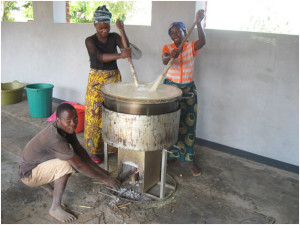
Mirriam Major explains why she volunteers as a cook at Mary’s Meals at Kaphirikwete Primary:
‘I come here and help cook likuni phala because I want our children to have the energy to learn, and also it is part of our community development.’
Primary Education in Malawi:
All children in Malawi are entitled to free primary education. Children are allowed to start Primary School at the age of six. There are eight years of Primary School – referred to as Standard 1-8. To get into the next class level, children must pass end of year exams. This means there can often be a wide age range in each standard. Entry requirements for secondary school are based on children’s results in their final Standard 8 exams. For many schools, the introduction of Mary’s Meals has seen senior pupils gaining a place at secondary school for the first time ever and more and more children are winning scholarships to pay their secondary school fees. For those who don’t go on to secondary school, the level of education pupils get at Kaphirikwete Primary provides them with good employment prospects by equipping them with basic levels of literacy and numeracy as well as life and agricultural skills. The daily meals provided by Mary’s Meals allow children to attend school every day, rather than work or scavenge for food, greatly increasing their chance of finding a job and a brighter future. The two national languages in Malawi are Chichewa and English. Children in Standard 1-4 are taught in Chichewa while also learning English. In years 5-8, they switch to lessons in English, with the addition of classes in Chichewa. The curriculum includes English, Chichewa, Maths, Life Skills and Agriculture.
Mary’s Meals at Kaphirikwete Primary School:
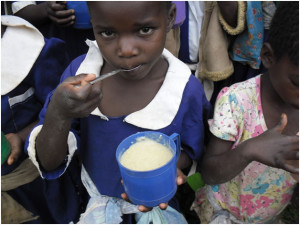 Mary’s Meals began feeding at Kaphirikwete Primary School in December 2012. Head teacher Daniel Masika Phiri describes the benefits that Mary’s Meals has had on the school;
Mary’s Meals began feeding at Kaphirikwete Primary School in December 2012. Head teacher Daniel Masika Phiri describes the benefits that Mary’s Meals has had on the school;
‘Since Mary’s Meals started here in December we have noticed that the children are able to concentrate much better and are learning so much more than they were before. Signs of malnutrition have already eased’
Enrolment Rates at Kaphirikwete Primary:
As you can see from the table below, enrolment rates have jumped significantly since Mary’s Meals began feeding here:
| Year | Boys | Girls | Total |
| 2011 | 149 | 140 | 289 |
| 2012 | 163 | 146 | 309 |
| 2013 | 192 | 186 | 378 |
It is fantastic news that Mary’s Meals at Kaphirikwete enables more children to go to the school and receive the education provided there. Your kitchen sponsorship at Kaphirikwete means that some of the world’s most vulnerable children need not go hungry and, through education, now have the opportunity to have a bright future.
Thank You!
On behalf of everyone at Mary’s Meals, and especially from all the children at Kaphirikwete Primary School, we would like to extend our very warmest thanks for sponsoring the kitchen at your school.
What you are doing for these children is truly life changing – thank you! 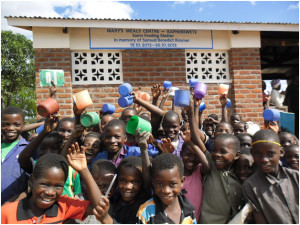
ZIKOMO!
Thank you in Chichewa!

